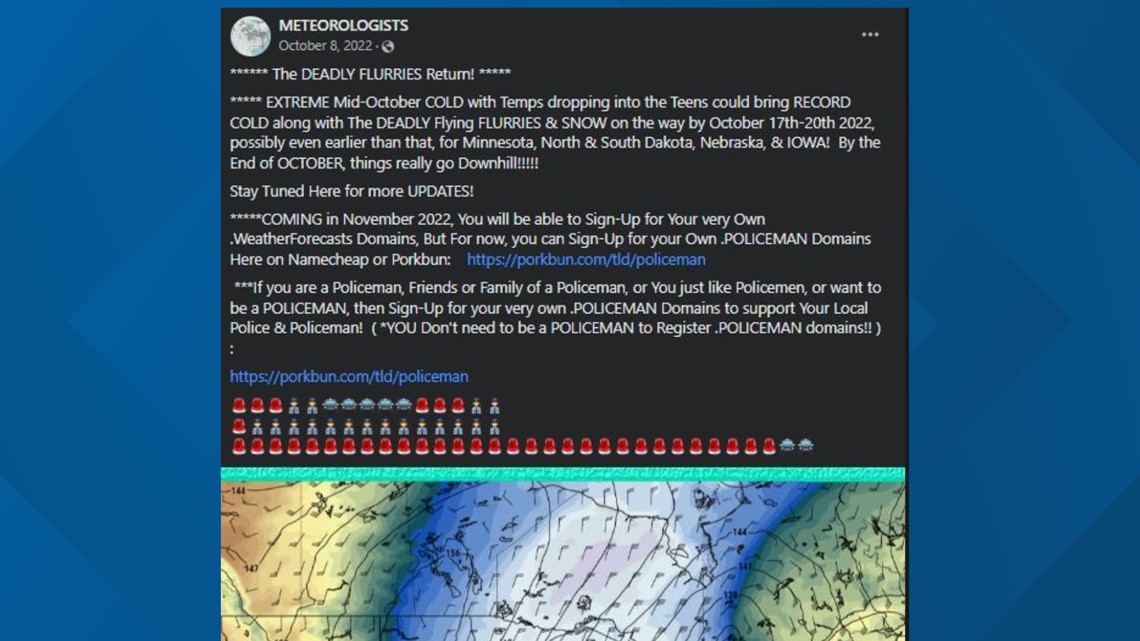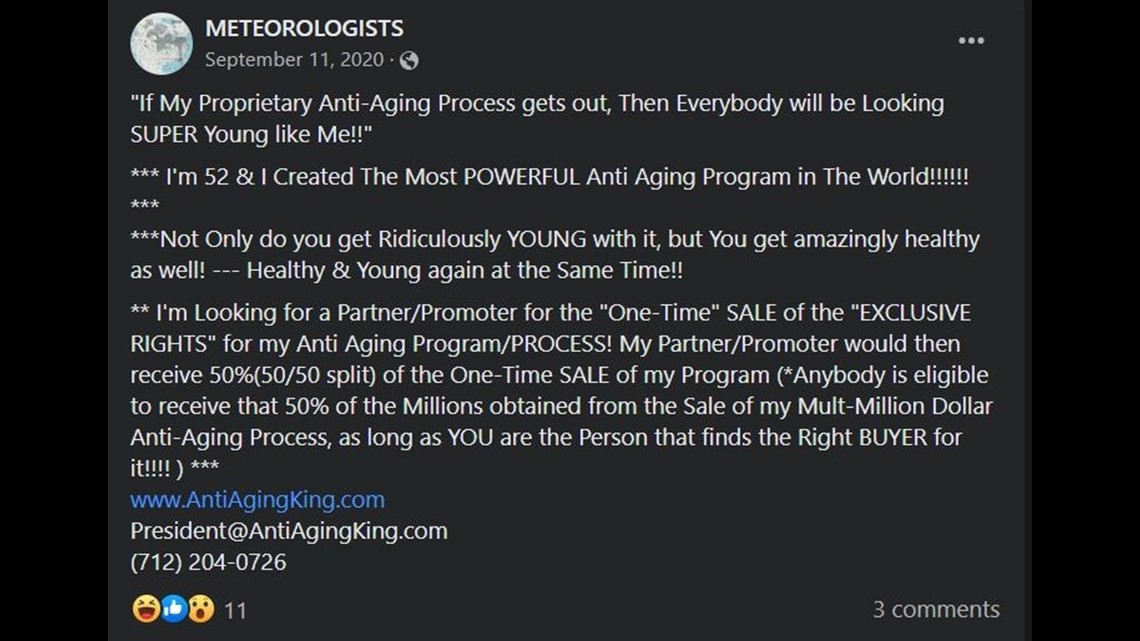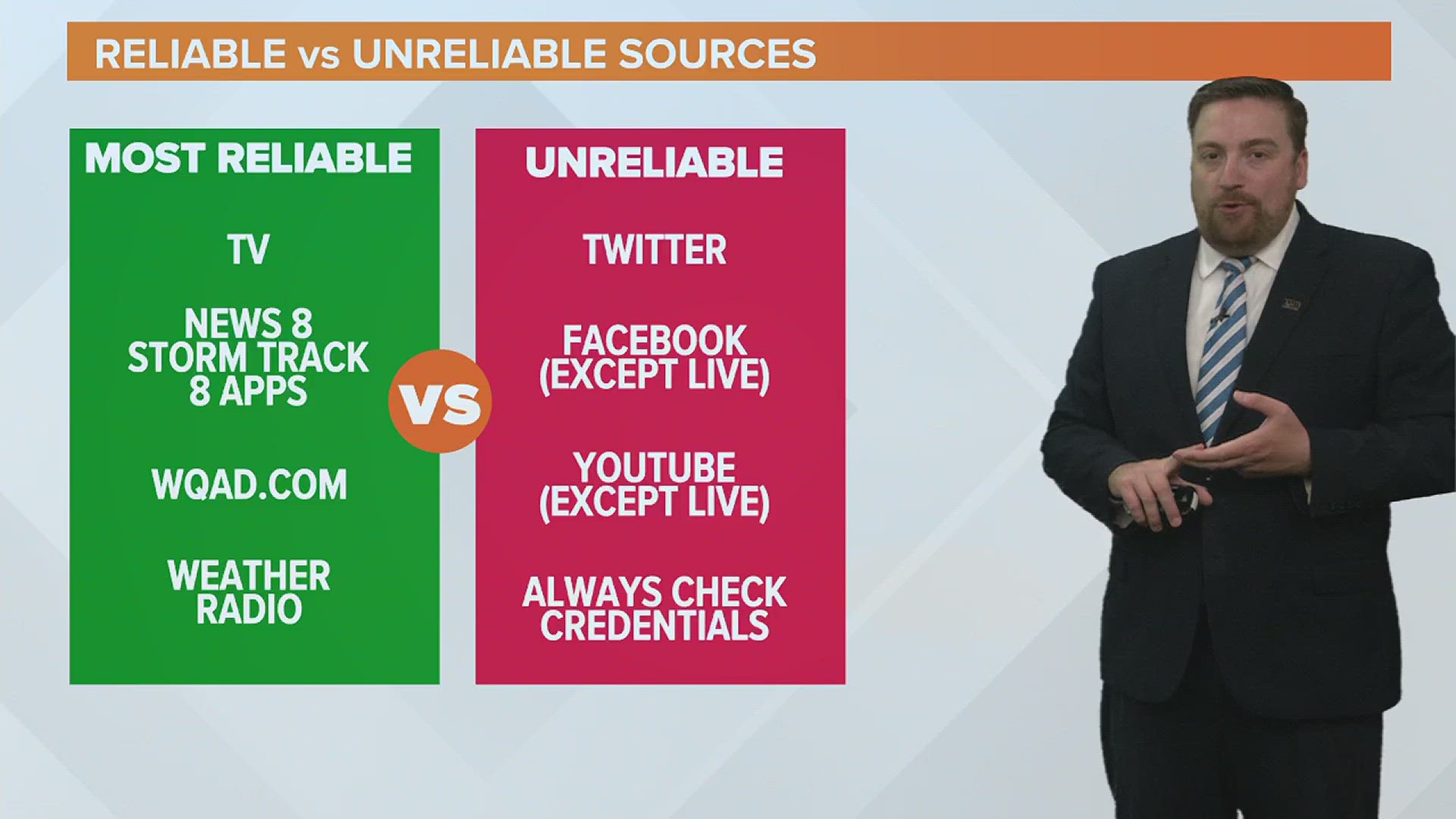MOLINE, Ill. — Popular social media platforms like Facebook and Twitter have quickly become another source for weather information, including forecasts and live severe weather streaming. With all of these options, how do you tell which pages are legit versus the pages that are just posting clickbait for views? That's the question for today's Ask Andrew segment.
The most reliable weather sources will be run by meteorologists, or those who have enough experience in the field to be trustworthy, whether that be an advanced storm spotter with certification or someone with an environmental sciences/meteorology degree.
During severe weather, live is best, whether it's on the air here at WQAD, on our Facebook page or on our YouTube page. That's when you need the most up-to-date information so that you know what is happening right now, rather than later.
Signs a page or post may not be from a legitimate source
- Posts that only contain a picture or two with very little explanation as to what you are looking at.
- Posts contain very strong clickbait-like language, including the words deadly, and life-threatening used for events that don't seem so severe.
- Posts are only made during big weather events, with not much else during periods of quiet weather.
- Posts encouraging you to "like and share".
- The person making the posts is not easily identifiable, including little to no information in the "About" section. There's a reason for this!


Sources you should automatically trust
- Your favorite on-air media outlet, like WQAD both on-air and online.
- The News 8, StormTrack8, and other reputable weather apps that send push notifications and are run by a team of meteorologists.
- A NOAA Weather Radio, which can alert you when a watch or warning has been issued for your area.
- The U.S. National Weather Service offices.
- Your local emergency management and law enforcement officials.


Doing just a few seconds of research before sharing and spreading potentially false and misleading weather information really can make a difference.
Have a question you would like me to answer for an upcoming Ask Andrew segment? Submit it, here.

